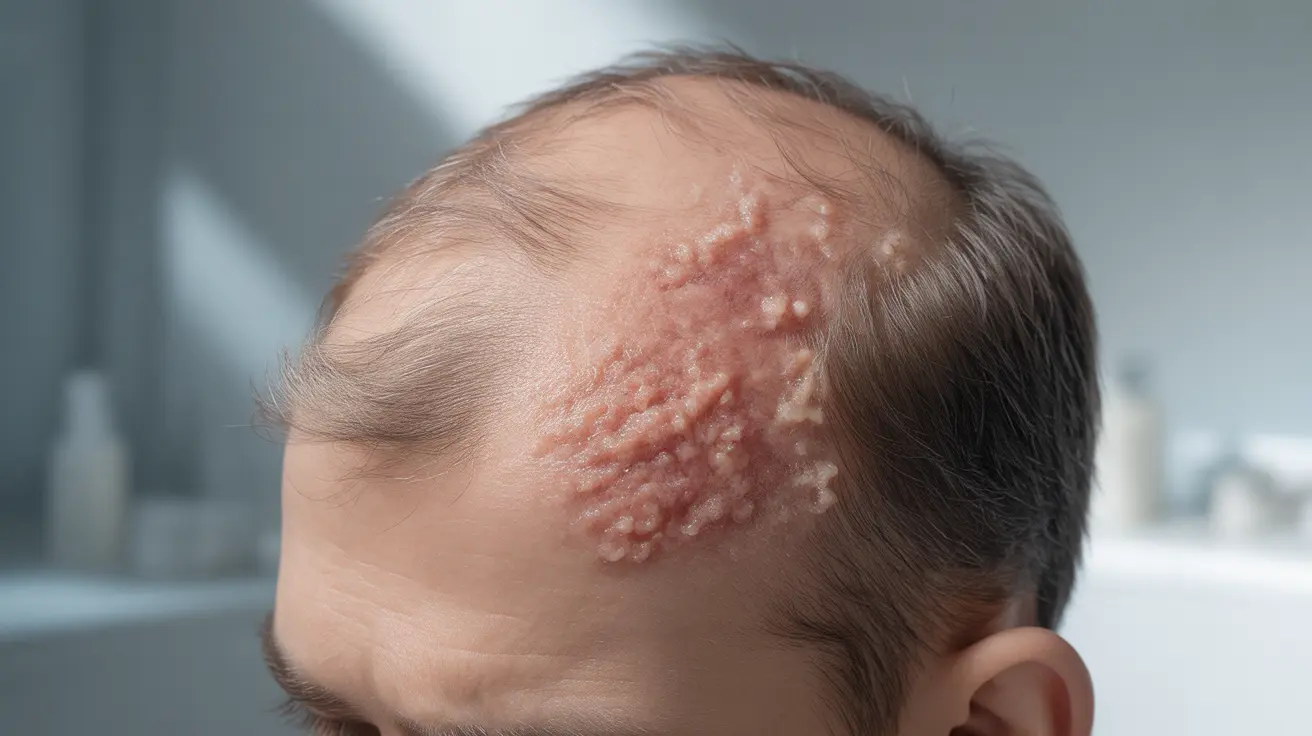Experiencing both an itchy scalp and hair loss can be distressing and frustrating. These symptoms often occur together and may signal various underlying conditions that require attention. Understanding the connection between scalp itching and hair loss is crucial for finding effective treatments and preventing further complications.
While either symptom alone can be concerning, their combination might indicate specific scalp conditions that need proper care and management. Let's explore the causes, treatments, and when to seek professional help for these interconnected issues.
Common Causes of Itchy Scalp and Hair Loss
Several conditions can trigger both scalp itching and hair loss simultaneously:
Seborrheic Dermatitis
This common scalp condition causes redness, scaling, and intense itching. The inflammation can weaken hair follicles, potentially leading to temporary hair loss if left untreated.
Fungal Infections
Scalp fungal infections, such as tinea capitis, can cause severe itching and patches of hair loss. These infections require specific antifungal treatments to resolve both symptoms.
Allergic Reactions
Contact dermatitis from hair products or environmental allergens can trigger scalp inflammation, itching, and subsequent hair shedding in sensitive individuals.
Treatment Options for Scalp Issues
Medical Treatments
Depending on the underlying cause, various medical treatments may be prescribed:
- Antifungal medications for fungal infections
- Medicated shampoos containing ketoconazole or selenium sulfide
- Topical corticosteroids for inflammation
- Antihistamines for allergic reactions
Gentle Hair Care Practices
Adopting proper hair care habits can help manage symptoms:
- Using pH-balanced, sulfate-free shampoos
- Avoiding hot water when washing hair
- Limiting use of heat styling tools
- Regular but gentle cleansing of the scalp
Natural Remedies and Prevention
Several home remedies can help soothe an itchy scalp while supporting healthy hair growth:
- Tea tree oil applications (diluted appropriately)
- Aloe vera gel for scalp soothing
- Cold pressed coconut oil treatments
- Apple cider vinegar rinses (diluted)
When to Seek Medical Help
Consult a healthcare provider if you experience:
- Severe or persistent itching
- Rapid hair loss
- Visible scalp inflammation or bleeding
- Symptoms that worsen despite home treatment
- Signs of infection like warmth or swelling
Frequently Asked Questions
What are the most common causes of an itchy scalp and hair loss happening together? The most common causes include seborrheic dermatitis, fungal infections, allergic reactions to hair products, and scalp psoriasis. These conditions often trigger both inflammation and disruption of the hair growth cycle.
How can I treat itchy scalp and hair loss caused by dandruff or fungal infections? Use medicated antifungal shampoos, maintain proper scalp hygiene, and consider prescription treatments if over-the-counter options aren't effective. Regular cleansing with appropriate products can help manage both symptoms.
Can harsh hair products or allergic reactions lead to scalp itching and hair loss? Yes, harsh chemicals in hair products can irritate the scalp and damage hair follicles. Allergic reactions can cause inflammation, leading to both itching and temporary hair loss. Switch to gentle, hypoallergenic products if you suspect a reaction.
What home remedies are effective for relieving an itchy scalp while preventing hair loss? Natural remedies like diluted tea tree oil, aloe vera, and coconut oil can help soothe the scalp and support healthy hair growth. However, ensure proper dilution and patch test before applying any natural remedies.
When should I see a doctor about persistent scalp itching and sudden hair loss? Seek medical attention if symptoms persist for more than two weeks, if there's severe itching or pain, visible scalp damage, or rapid hair loss. Also consult a doctor if over-the-counter treatments aren't providing relief.




